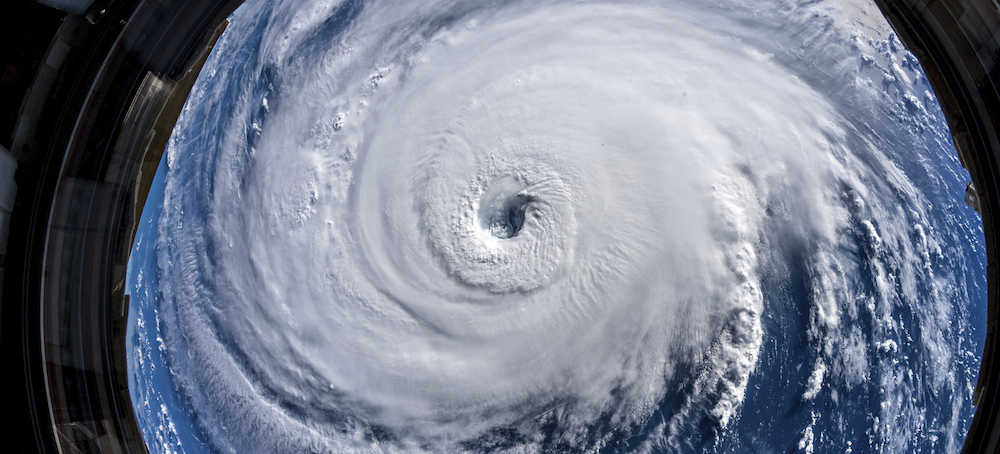Hotter Seas Meet Weakening Climate Goals
Arianna, Skibell POLITICO Hurricane Florence churns over the Atlantic Ocean in September 2018, as seen from the International Space Station. (photo: ESA/NASA/AP)
Hurricane Florence churns over the Atlantic Ocean in September 2018, as seen from the International Space Station. (photo: ESA/NASA/AP) Hotter Seas Meet Weakening Climate Goals
Arianna, Skibell POLITICOSea surface temperatures have been at their warmest on record for 13 months in a row. In the North Atlantic, a blistering marine heat wave lasted for 421 straight days, finally breaking on April 29, writes Chelsea Harvey.
The oceans have been slowly warming for decades as humans continue to release planet-warming pollution into the atmosphere, but the rate of recent warming has defied expectations — and statistical models.
Scientists are stumped, but many fear the rapid ocean warming could be a symptom of a serious shift in the global climate. The world could be moving into “uncharted territory,” said Gavin Schmidt, head of NASA’s Goddard Institute for Space Studies, in a somber warning published earlier this year.
“It could imply that a warming planet is already fundamentally altering how the climate system operates, much sooner than scientists had anticipated,” Schmidt said.
One clear consequence is more active hurricane seasons with bigger, stronger storms. Hot water is basically jet fuel for tropical cyclones.
The hurricane season that starts June 1 may be ominous for another reason: Researchers are predicting that the current El Niño climate pattern, which tends to suppress Atlantic hurricanes, will end in the coming months.
The other bad news: Meanwhile, countries continue to make slow or little progress in meeting climate goals. Global carbon dioxide emissions from burning fossil fuels reached a record high in 2023, according to NASA.
Despite President Joe Biden’s climate law, the U.S. — the world’s second-biggest carbon polluter — is still far from meeting its domestic climate targets, according to Climate Action Tracker. Europe, the third-largest contributor to climate change, is also lagging.
And the United Kingdom is attempting to relax its pollution limits in the coming years, citing the extra emissions the country cut during the last five years (a period that included the pandemic), writes Abby Wallace. What she describes as an “accounting trick” would keep Britain on track to meet its climate targets on paper, but experts say it would do little to achieve the real cuts the world needs.
“If the government were to effectively slow down the U.K.’s progress in cutting emissions, questions may be asked about how this looks against a backdrop of heat records constantly being broken around the world and an extreme wet winter in the U.K. that’s left crops rotting in the fields, cutting harvests by a quarter,” said Jess Ralston, head of energy at the nonprofit Energy and Climate Intelligence Unit.
